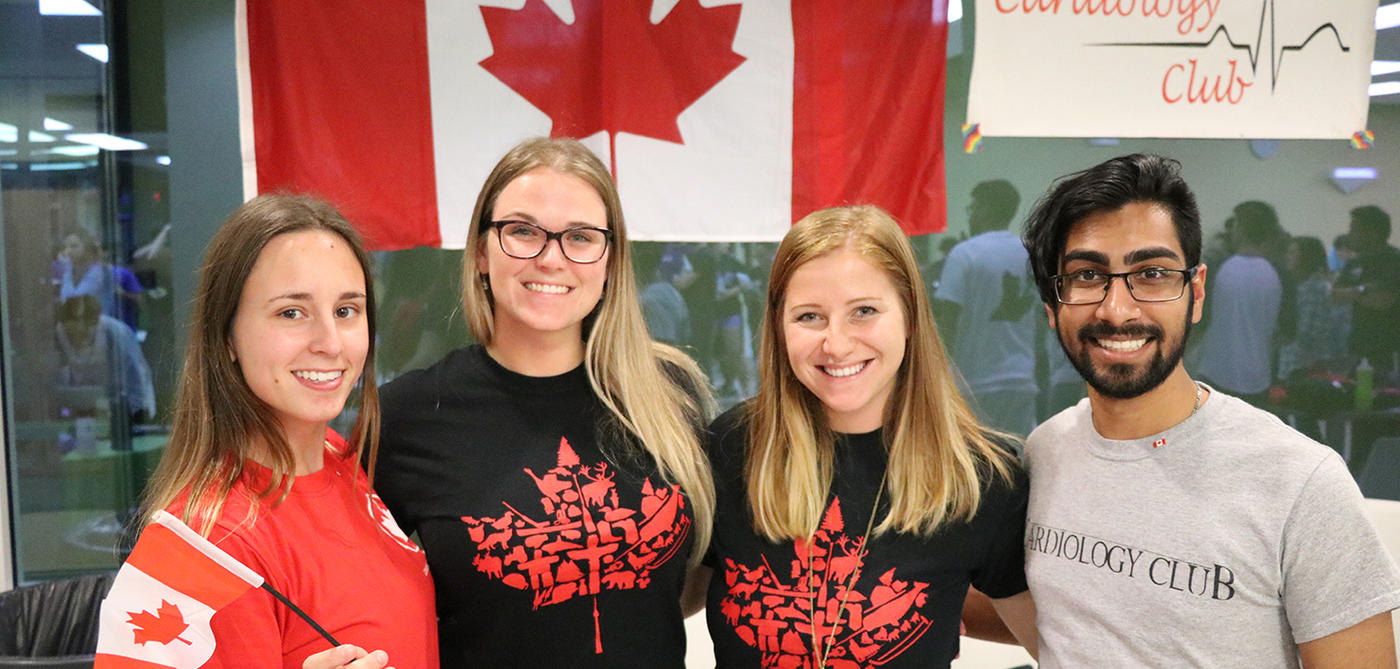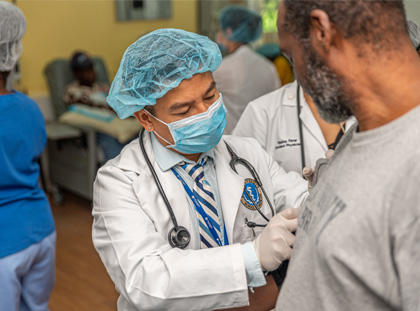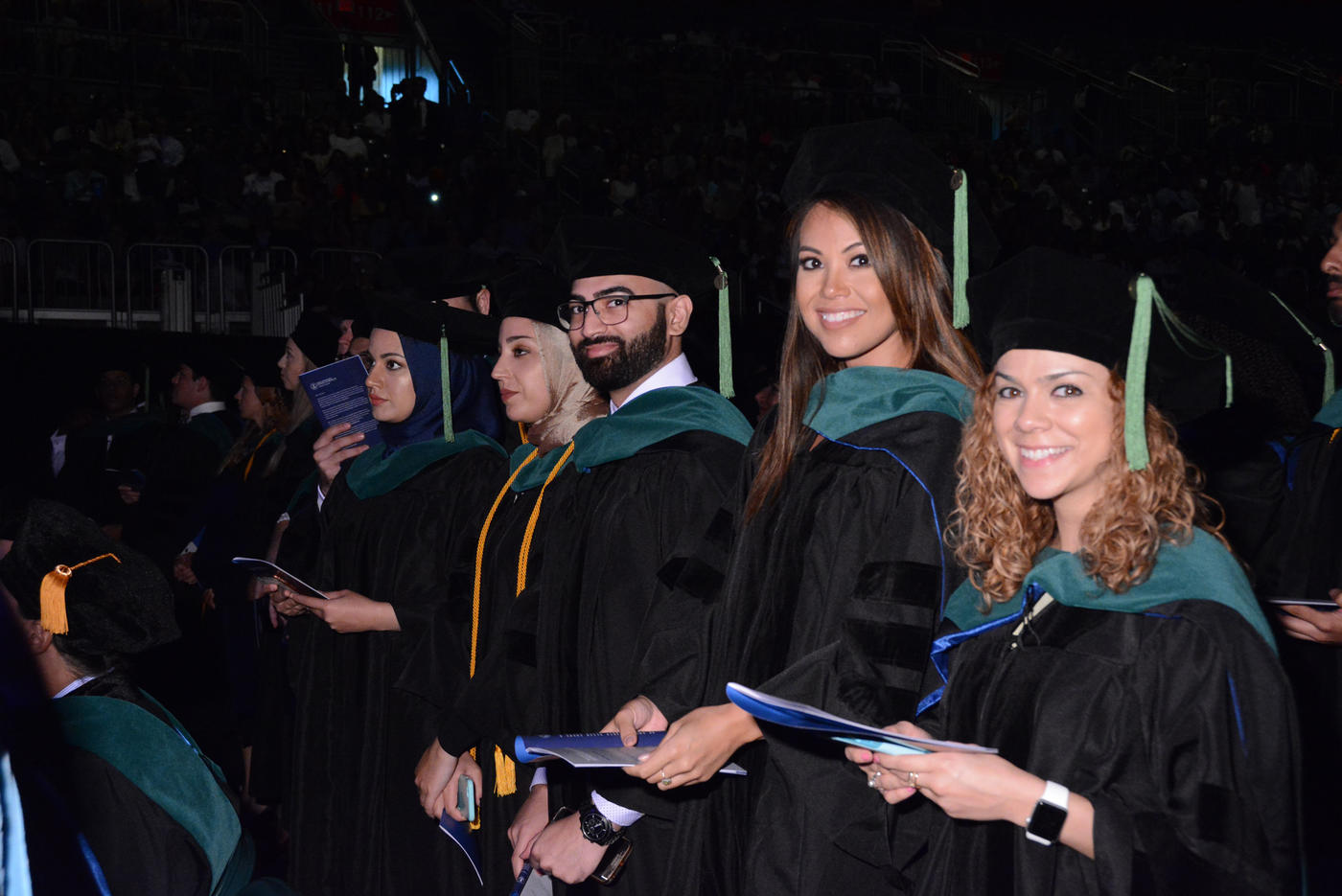At Ross University School of Medicine (Ross Med), nearly all our students come from the United States and Canada, where they also usually return to practice. As they train to become physicians, students must also learn how the medical systems function in their home countries. To get a better grasp of these two very distinct healthcare systems, we’ll outline and compare them below. Which country—Canada or the United States—pays more for medical care? Which country’s healthcare system performs better?
Because healthcare is often highly politicized, it can sometimes be difficult to get straight answers to simple questions. We’ll use reliable and unbiased nonprofit, government, and international sources to try to be as accurate as possible. Two of our main sources are the Canadian Institute for Health Information (CIHI) for numbers north of the border and the Commonwealth Fund, for both U.S. and some Canadian statistics. The latter’s name may sound like a Canadian nonprofit, but it is actually a U.S. foundation more than a century old whose sole purpose is to improve healthcare for all Americans.
The Canadian Healthcare System
Since 1984, the Canada Health Act (CHA) has provided all Canadians with publicly funded healthcare insurance, a program often called “single payer” because all funding and payments come from a single source: the Canadian federal government. The government distributes funds to the provinces and territories, which must each provide care and fulfill CHA requirements for its citizens. Insured health services include inpatient and outpatient hospital care; medically necessary care for maintaining health; disease prevention and the diagnosis and treatment of injuries, illnesses, and disabilities; and medically required physician services.
Provinces and territories may or may not offer such additional benefits as ambulance, children’s, geriatric, or rehabilitation services; prescription drug coverage; or chiropractic, dental, or vision care. If any additional benefits are offered, they do not usually cross province or territory lines. This means that an Ontario citizen may have to pay out of pocket for certain health services in neighboring Quebec or Manitoba.
All Canadian citizens and permanent residents receive medically necessary hospital and physician services free at the point of use. This does not mean, however, that healthcare is free in Canada. Most government funds for Canadian Medicare, as their health system is called, come from collected taxes. Canadians prepay for healthcare as they do for most other government services through taxes, the rates of which are similar to those paid in the United States. As for government spending, Canadian Medicare spending was expected to surpass $250 billion USD in 2022, which rounds to about $6,500 USD per person.
To supplement their publicly funded healthcare, about two of every three Canadians carry some sort of private health insurance. As of 2015, 90% of Canadians get that private coverage through their employers, unions, or another form of group coverage. Some Canadians go abroad for medical care, particularly when seeking specialist care or care that is unavailable or illegal in Canada, or when trying to reduce costs or avoid wait times.
Canada’s health system works pretty well, and it is often cited as a well-functioning example of universal healthcare. But out of 11 high-income country health systems compared in a recent Commonwealth Fund study, Canadian Medicare ranked 10th overall—one spot ahead of the last-place health system of the United States. Note that Norway, the Netherlands, and Australia ranked one, two, and three, respectively, in the study, which graded healthcare affordability, administrative efficiency, equity, and outcomes. The secrets to health system success, according to the study, are:
- Universal coverage and the removal of cost barriers
- Investment in primary care systems to ensure equitable services
- Reduction of administrative burdens
- Investment in social services, particularly for children and working-age adults
The U.S. Healthcare System
The United States does not have universal healthcare, instead mixing public and private, for-profit and nonprofit insurers and healthcare providers. The federal government funds the national Medicare program, which covers people 65 and older and some people with disabilities, as well as programs for children, government workers, low-income and unemployed people, and veterans. But private for-profit insurance is the dominant form of coverage in the United States. A majority of Americans have employer-sponsored insurance, and they generally pay less than those who purchase insurance individually, but the costs are still high. In 2021, national health expenditures were $4.3 trillion, or $12,914 per person.
How does the United States rank in healthcare in the world?
Of the 11 countries included in the Commonwealth Fund study mentioned above, the United States spends by far the most on healthcare—18.3% of its gross domestic product (GDP). But Americans also get by far the least return on their investment. The U.S. healthcare system finished 11th out of 11 in the rankings, and the results show it was a very distant 11th place. In fact, the United States finished so far behind 10th-place Canada that it had to be excluded from the survey average because it skewed the numbers for the other countries.
So, the U.S. healthcare system does not compare favorably with other high-income countries. But what about individual U.S. states? The Commonwealth Fund ranked all 50 U.S. states according to healthcare access, quality, use of services, costs, health disparities, reproductive care and women’s health, and health outcomes. In 2023, the nation’s best state health systems were Massachusetts, Hawaii, New Hampshire, Rhode Island, and Vermont. Each of those states incorporate one or more of the Commonwealth Fund secrets to healthcare success. The lowest-ranking state health systems were Arkansas, Texas, Oklahoma, West Virginia, and Mississippi. It does matter which state you call home, but healthcare access and quality in the United States also vary greatly according to race, ethnicity, income, and level of education.
Differences Between the Systems
Americans pay more for healthcare than Canadians, and they can also face unexpected or sudden costs. There are many different private insurers, with different rules for reimbursement. Copays and deductibles vary widely. Patients sometimes face high out-of-pocket costs for urgent care, or for factors beyond their control. Many people are burdened by sizable medical debts, and the U.S. healthcare system is the nation’s leading cause of non-business bankruptcy.
About 91% of Americans have health insurance, but 29% of people with employer coverage and 44% of those with individual market or marketplace coverage are underinsured, meaning they have gaps in coverage or their coverage doesn’t provide them with affordable access to healthcare. Nearly half of Americans have skipped or delayed care because of the cost.
So, what are the conclusions? Canada’s healthcare system, Canadian Medicare, performs considerably better than the U.S. healthcare system. Canadian healthcare is also less expensive. The cost of healthcare in the United States—both for individuals and the government—is by far the highest in the world, yet the United States also has the worst health outcomes overall of any high-income nation.
It is important to note that both the U.S. and Canadian healthcare systems are filled with highly capable medical professionals who offer top-flight care. Many of the world’s most talented doctors have studied medicine in the United States and Canada, and many of them have settled in those countries to pursue satisfying and often lucrative careers. Each system has its problems, but when people need quality healthcare, it is readily available.
Frequently Asked Questions
Is healthcare more expensive in the United States or Canada?
The healthcare system in the United States is more expensive than the healthcare system in Canada. Health expenditures in the United States average out at $12,914 per person, nearly double the $6,500 spent per person in Canada.
Can I get healthcare in Canada as an American?
Yes, you can get healthcare in Canada as an American, but it won’t be free. Canada does not pay for healthcare services for visitors, so you should have health insurance before you cross the border. The same goes for Canadians visiting the United States: you can get medical care, but don’t forget to pack your health insurance card.
How long do Canadians wait for healthcare?
Wait times can be lengthy in Canada for elective or non-life-threatening specialist care. In 2022, for example, the average wait time from referral by a general practitioner (GP) to specialist treatment was 27.4 weeks. Wait times in the United States are generally shorter, but there is limited data on wait times nationally, and no agreed-upon metric to assess them. In Vermont, one of the few states that keep track of such statistics and one of the better-performing U.S. states for healthcare overall, GP to specialist treatment wait times average about 100 days, or a little more than 14 weeks.
About Ross Med
Ross University School of Medicine is accredited by the Caribbean Accreditation Authority for Education in Medicine and other Health Professions (CAAM-HP, www.caam-hp.org). This means that Ross Med grads—who earn Doctor of Medicine (MD) degrees—are eligible for Education Commission for Foreign Medical Graduates® (ECFMG®) certification and can apply for residencies and licensure in all 50 U.S. states, Puerto Rico, and Canada. Learn more about Ross Med by contacting admissions, taking an admissions assessment, and reviewing the MD program’s objectives.
Related Resources:




